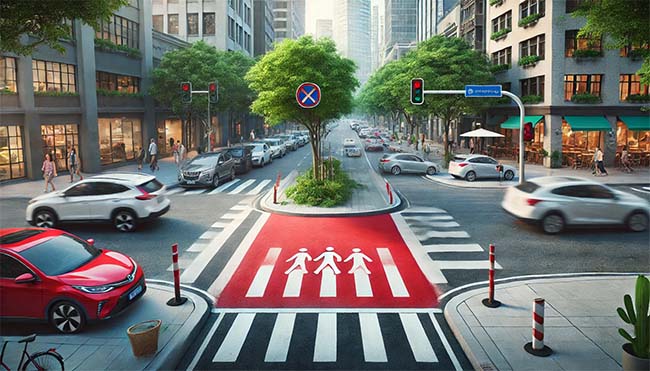The ongoing global push for climate initiatives has sparked heated debates over their true intent and impact. Among the most contentious measures is the perceived assault on private vehicle ownership. Many argue that behind the lofty rhetoric of combating climate change lies a concerted effort to erode personal freedoms—starting with our parking spaces. The latest parking restrictions in cities like San Francisco are emblematic of a broader trend, raising concerns about whether this is a war against drivers or a legitimate effort to promote safety and sustainability.
Parking woes and the climate agenda
For decades, cars have symbolized freedom and personal mobility. However, recent policies—from vehicle emission restrictions to city planning that prioritizes pedestrian zones—have sparked criticism. Central to this backlash is the belief that global elites, often working through entities like the United Nations, are orchestrating an agenda to create car-free cities under the guise of fighting climate change.
Removing parking spaces, critics argue, isn’t just an inconvenience; it’s a calculated move to make driving impractical and punitive. Cities worldwide have begun replacing parking spots with bike lanes, bus-only corridors, and pedestrian walkways. While these changes aim to promote greener transportation options, many citizens feel excluded from the decision-making process.
The case of “Daylighting” in California
The new “daylighting” law in California underscores this tension. By prohibiting parking within 20 feet of intersections to improve pedestrian visibility, cities like San Francisco are losing thousands of parking spots. While advocates like Jodie Medeiros, Executive Director of Walk San Francisco, emphasize the measure’s life-saving potential, drivers feel the sting of yet another restriction on their mobility.
“I live in a dense area, and this law makes finding parking even harder,” said John Goins, a San Francisco resident. He believes the measure disproportionately impacts urban drivers who already struggle with limited space. Critics argue that the law lacks nuance—failing to differentiate between large SUVs that obstruct views and smaller vehicles that don’t pose the same hazard.
The law’s implementation also leaves much to be desired. With no dedicated funding for repainting curbs or removing obsolete parking meters, the burden falls on drivers to navigate unclear rules—at the risk of incurring fines.
A war of convenience or necessity?
Proponents of these measures argue that prioritizing pedestrian safety and reducing car dependency are essential for sustainable cities. Yet, skeptics see a more insidious motive: a war against the everyday driver. Removing parking spaces, increasing fines, and promoting public transit, they contend, are part of a broader strategy to discourage private transport. This not only limits individual freedom but also hits low-income communities hardest, as they are less likely to afford alternatives like electric vehicles or rideshares.
Moreover, the broader implications of such policies cannot be ignored. When drivers are forced to park illegally or spend excessive time circling for spaces, it fuels frustration, not environmental change. For many, the car remains a necessity—not a luxury. Parents shuttling kids, small business owners making deliveries, and workers commuting long distances all depend on reliable access to their vehicles.
A path forward: balance, not extremes
Climate-conscious urban planning and private transport are not mutually exclusive. Policies must balance safety, environmental goals, and the practical realities of modern life. Measures like daylighting, while well-intentioned, should be implemented with input from communities, considering their unique needs and challenges. For example:
- Targeted rules: Tailor restrictions to vehicle size and street conditions, instead of blanket bans.
- Incentives over penalties: Provide incentives for eco-friendly behaviors, such as subsidized electric vehicles or discounted transit passes, rather than relying solely on fines.
- Public engagement: Involve residents in urban planning to ensure new policies align with local realities.
The parking wars in California are a microcosm of a larger battle over the future of transportation. While safety and sustainability are vital, these goals must not come at the expense of citizens’ autonomy and livelihoods. Governments must tread carefully, balancing the urgency of climate action with the everyday needs of those they serve. Anything less risks alienating the very people whose support is essential for lasting change.
The road ahead is clear: collaboration, not coercion, is the key to a sustainable and equitable future.
-With contribution by ABC7News report.



